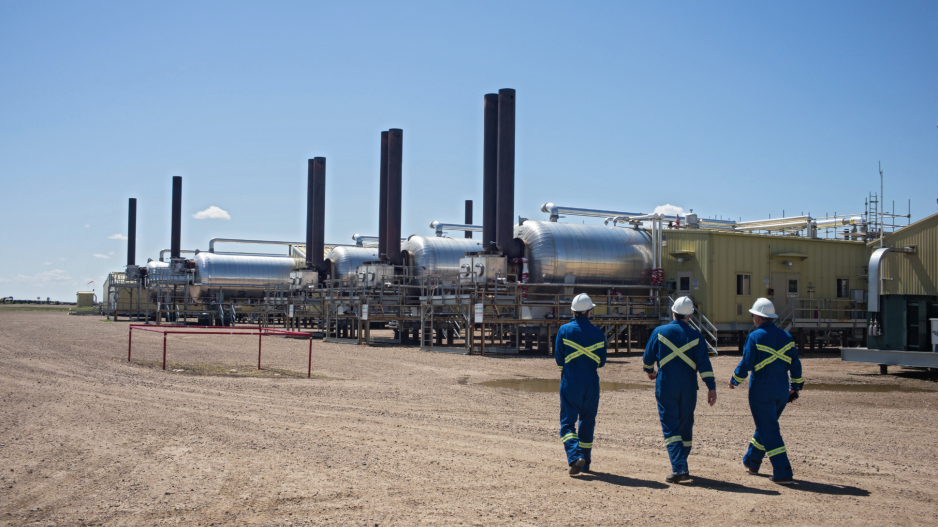Of the 20 biggest non-mining mergers and acquisitions last year, International Petroleum Corp. (IPC) (TSX:IPCO) can claim two.
At the start of 2018, IPC – part of the Lundin Group of Cos. – closed on its $512 million acquisition of Cenovus Energy Inc. (TSX:CVE) oil and gas assets in southern Alberta. It ended the year with a $675 million takeover of Calgary-based BlackPearl Resources Inc.
With a strong balance sheet, a global purview and the ability to buy when others had to sell, IPC has seen Canada as a favourable place to invest. It still does.
“We could basically go anywhere, and I think we were particularly attracted to Canada because of, really, the lack of competition,” IPC CEO Mike Nicholson said on a call from the company’s corporate head office in Geneva, Switzerland. IPC’s corporate offices are in Vancouver and its operational offices are in Calgary.
“You were having quality assets coming onto the market but limited competition because companies’ balance sheets were stressed; they couldn’t raise equity capital. And from our perspective, that was a relatively non-competitive landscape to acquire resources. A little bit against conventional thinking.”
The company was also in a little bit of an unconventional position.
IPC was created in 2017 with European and Southeast Asian assets inherited from Lundin Petroleum AB (STO:LUPE). The move came after a $5 billion refinancing deal and after one of Lundin Petroleum’s key Norwegian assets came on stream.
IPC was spun off debt-free and with positive cash flow when the markets were stressed, and the pricing of resource acquisitions low.
The company is now Lundin’s oil and gas growth vehicle outside of Norway, and its assets of greatest value are in Canada.
“For us, it’s been a little bit counter-cyclical,” said Nicholson. “We prefer to go into markets that aren’t so hot, and there’s a reasonable line of sight to recovery.... Knowing what the playground looked like at that point in time, [Canada] was still a very attractive jurisdiction for us to be acquiring assets if you take that long-term view.”
IPC’s deal with Cenovus – which was divesting of certain assets after a $17.7 billion debt financing deal to acquire oilsands assets from ConocoPhillips – more than tripled IPC’s oil and gas production and reserves. The takeover of BlackPearl, which closed in December, more than doubled the company’s proven and probable (2P) oil reserves. IPC’s total 2P reserves are 288 million barrels of oil equivalent (BOE).
The majority of IPC’s oil assets are in Saskatchewan, and the company’s oil production in Alberta falls just below the province’s threshold for oil production curtailment measures that took effect this year. It means the company has been able to benefit from the higher Canadian prices those measures have brought, without having to limit production.
Nicholson also said the company doesn’t face physical infrastructure constraints in getting its oil and gas products to its primary market: the United States.
“Even with oil prices improving through 2018, Canada still was faced with a situation of a lack of pipeline egress, a perfect storm of high levels of refinery maintenance, and there hadn’t been an adequate ramp-up in crude-by-rail exports,” said Nicholson.
“We’re in a favourable position.”
Last year, IPC generated around US$454 million in revenue, up 124% year-over-year. Its net income rose by 356% to top US$103 million. The company’s daily average net production was 34,400 BOE in 2018, and it expects that number to rise to between 46,000 and 50,000 in 2019.
This year, the company is looking to invest close to $170 million in its assets in Malaysia, France and Canada.
More deals aren’t out of the question either: because of IPC’s all-paper deal with BlackPearl, Nicholson points out that the company still has “a lot of headroom” under its existing debt facilities.
“And if you can apply some acquisition financing, that means that we could still be in a position to do additional acquisitions up to around $300 million without having to ask our shareholders for any money,” he said.
“So very much we’re still opportunistically screening for additional bolt-on acquisitions that we think would add long-term value to the story.” •




